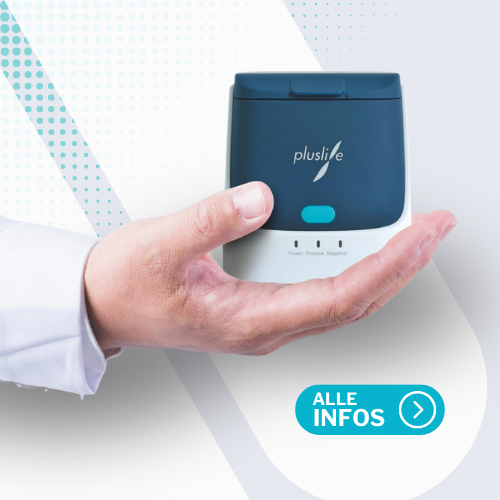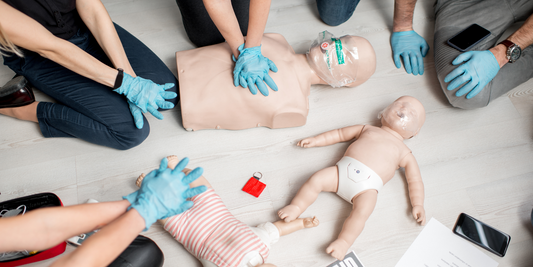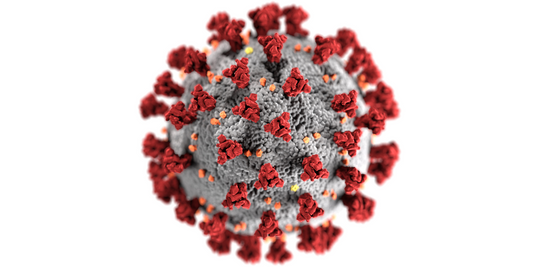
You are not alone: strategies and offers for suicide prevention
Every year, millions of people lose their lives through suicide worldwide - a topic that is often affected with shame and stigma. In 2022, a total of 10,119 people committed suicide. To create a comparison: in 2022, 2,776 people died through a traffic accident, 264 people were murdered and 1,990 died by illegal drugs. In the context, this means that in 2022 more than twice as many people died from suicide than through traffic accidents, illegal drugs and murders. In 2023, the suicidality rate rose to 10,300. 73% of the people were male and 29% of the people.
Many of those affected could be helped if we recognize the signs in good time and speak openly. Suicide prevention is an important social mandate that concerns us all. No matter whether through direct support, offering an open ear or access to professional help - each of us can make a contribution to save lives. In this article we would like to draw attention to the importance of suicide prevention, introduce help and show ways of how we can make a difference together.

World suicide prevention day
World Suizide Prevention Day takes place annually on September 10th. This day was launched by the International Association for Suicide Prevention (IASP) in cooperation with the World Health Organization (WHO). The aim of the day is to raise awareness of the global problem of suicide, to promote preventive measures and to break the social taboo around suicide.
-
enlightenment: World Suizide Prevention Day wants to strengthen awareness of suicide risks, warning signs and support options. Enlightenment is intended to reduce the stigma, which often prevents people from looking for help.
-
Promotion of prevention: The day encourages the implementation of measures that help prevent suicides. This includes psychological support, social interventions and access to qualified health care.
-
Support for bereaved: The day also offers a platform for the support of people affected by the suicide of a relative or friend.
Suicide prevention: Numbers and facts
- Worldwide take almost every year 800,000 people the life. This corresponds to suicide every 40 seconds.
- Suicide is that Second most cause of death In young people between 15 and 29 years.
- Many suicides can be prevented by preventive measures. Early intervention and open dealing with psychological problems are crucial.
Activities and measures
- Enlightenment campaigns: Many organizations and health services carry out campaigns on the World Suizide Prevention Day to inform the public about suicide and prevention.
- Self -help groups and support: Events offer those affected and relatives the opportunity to exchange experiences and find support.
- Community projects: Projects and programs are often initiated to help people talk about their psychological problems and to find access to help offers.

Prevention measures for those affected and their close persons
Prevention measures in suicide include a variety of approaches that aim to minimize suicide risks, recognize early signs and offer support. Here are some important measures for Suicide prevention:
Enlightenment and sensitization
- Horror: The density of suicide and mental illnesses through educational programs helps to reduce barriers so that those affected are more likely to open up and seek help.
- Training: Special training for teachers, nurses, doctors and family members help, recognize warning signs and react appropriately.
- Media guidelines: Responsible reporting on suicide can prevent imitation. Projects such as the "Papageno project" offer guidelines for journalists.
Early detection and intervention
- Recognizing warning signs: Frequent signs such as social isolation, loss of interest, self -harm or talking about suicide should be taken seriously and addressed early.
- Crisis intervention: In an emergency, immediate help is necessary, for example through crisis teams, hotlines or medical on -call duty. Early intervention can significantly reduce the risk of suicide.
Access to professional support
- Psychotherapy and advice: Those affected should be enabled access to professional support from psychotherapists or consultants to treat mental illnesses such as depression or anxiety disorders.
- Drug treatment: In some cases, antidepressants or other psychotropic drugs can be important support for stabilization.
Suicide hotlines and crisis services
- 24-hour hotlines: Hotlines such as telephone counseling or the number for grief offer anonymous and free help around the clock.
- Online advice: Anonymous online chats and email advice offer a low-threshold way to talk about suicidal thoughts and find support.
Creation of safe environments
- Reduction of access to suicide agents: Access to potentially dangerous means such as firearms or medication should be restricted in order to reduce the risk of suicide actions.
- Crisis -proof places: Places that are often used for suicide attempts, such as bridges or train tracks, can be secured by structural measures such as fences or security personnel.
Support from relatives and friends
- Include relatives: Relatives and friends of persons at risk of suicide should be included in the prevention. You can recognize warning signs and stand aside.
- Offers for bereaved: People who have lost someone through suicide often need long -term psychosocial support to deal with their grief and loss.
Promotion of an open dialogue
- Talks about suicide: An open and respectful conversation about suicidal thoughts can be relieving and those affected help to process their emotions and accept professional help.
- Offer hope and perspectives: Often people at risk of suicide need hope and a perspective to get out of the crisis. This can be achieved by conveying small steps and achievable goals.
Community prevention programs
- School -based prevention: In schools, programs should be established that strengthen the mental health of young people, promote dealing with stress and clarify at an early stage about suicide prevention.
- Workplace programs: Companies can promote preventive measures by providing information about mental health and offering company consulting programs (EAP).
Early help in mental illnesses
- Early diagnosis: The early diagnosis and treatment of mental illnesses such as depression, anxiety disorders or addiction diseases is crucial to reduce suicide risk.
- Continuous support: Continuous therapeutic support and the establishment of a stable social network are long -term prevention measures.
National prevention programs and offers of help
The national suicide prevention program for Germany (Naspro), founded in 2002, is a network that promotes suicide prevention in society. The aim is to reduce the number of suicides in Germany through early interventions, education and networking of actors from healthcare, educational institutions, politics and the media. Naspro relies on joint measures such as training for specialists, prevention campaigns and the promotion of research. Through the entire social activation, the topic of suicide is intended to be at stervet and that affected people are to be helped quickly.
Aid offers and contact persons for those affected and relatives
| Organization/offer | Hotline | Description | Website |
|---|---|---|---|
| Telephone pastoral care | 0800 111 0 111 or 0800 111 0 222 | Anonymous, free advice for people in crisis situations, suicidal thoughts or psychological stress (also chat/email) around the clock. | www. Telefonselsorge.de |
| Number against grief | 116 111 (children & adolescents), 0800 111 0 550 (parents) | Free advice for children, adolescents and parents at worries and crises, anonymous. | www. number counterfeitkummer.de |
| Foundation German Depression Aid and Suicide Prevention | 0800 3344533 | Informed about suicide prevention, offers lectures and workshops, is committed to discharge the topic of suicide. | www.deutsche-depressionhilfe.de/suizidpraevention |
| Initiative "Friends for Life" |
Enlightenment about suicide and depression, especially for young people and young adults. Information on warning signs and help.
-> No advice on life crises! |
www.frnd.de | |
| Crisis services of the federal states |
0800/655 3000 |
Regional crisis services offer telephone advice and partly home visits for people in acute psychological crises. |
For example, Bavaria |
| Medical on -call duty | 116 117 | Mediates medical help outside of office hours, even in psychological emergencies. | https://www.116117.de/de/index.php |
| Federal Center for Health Education (BZGA) | Offers information on suicide prevention, mental health, prevention programs and contact details on help offers. | www.bzga.de | |
| Psychological advice centers | Local advice centers offer free and confidential support for people in crisis situations. | https://familienportal.de/familienportal/lebenslagen/krise-und-konflikt/krisetelefone-anlaufstellen | |
| Self-help group and clubs | Offer an anonymous space for those affected and relatives to exchange and mutual support. The self -help guide helps with the search. | https://www.suizidprophylaxe.de/hilfsangebote3/bundesweiter-selbsthilfeverein-fuer-angehoerige-um-suizid/ |
Online platforms:
Online platforms and apps Are decisive in the Suicide prevention, because they have one Low -threshold access offer support and can quickly achieve people in crisis situations.
- Low -threshold access: They offer anonymous and easy access to help without those affected to be physically present.
- anonymity: Those affected can open safely and confidentially, which lowers the inhibition threshold, to seek help.
- Round-the-clock availability: Online offers and apps are usually available around the clock and offer immediate support in acute crises.
- Self-help tools: Many apps offer exercises and strategies for coping with crisis that help those affected to stabilize their emotional states.
- Access for young people: Special offers such as the U25 online advice Especially young people and young adults who are often difficult to reach with traditional help offers.
- Community and exchange: Online communities offer those affected the feeling of not being alone, thus reducing the risk of escalation
| Offer | Description | Link/website |
|---|---|---|
| Telephone pastoral care chat | Anonymous and free advice via chat for people in crises, with thoughts of suicide or psychological stress. | Telephone pastoral care chat |
| U25 online advice | Peer advice for young people under the age of 25 by email, especially for suicidal thoughts and crisis situations. | U25 online advice |
| Youth-Life-Line | Advice offer for young people up to 25 years through the same age (peers), especially in crises and suicidal thoughts. | Youth-Life-Line |
| Crisis compass (app) | German depression app for dealing with suicidal crises and depression, with help for those affected and relatives. | Crisis |
| 7cups (app) | Online community and app, which offers emotional support from trained listers, anonymously and available around the clock. | 7cups |
Contributions, contact persons and hotlines for persons at risk of suicide play a central role in suicide prevention. They not only offer quick and direct help in acute crisis situations, but also help to ensure long -term support. Here are the most important reasons why these help offers are of crucial importance:

Your contribution can save life
Suicide prevention is a common task that affects us all. Everyone who fights with suicidal thoughts deserves it, heard, supported and taken seriously. It is often the courage to find help or to have an open conversation that can make the decisive difference. Nobody should feel alone - there is always a way out, even if the path seems dark. Whether by direct access to contact points, helping conversations with familiar people or professional support: every step towards help is a step towards life.




























